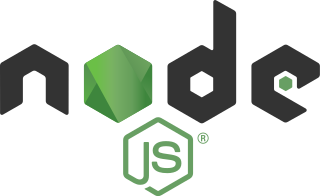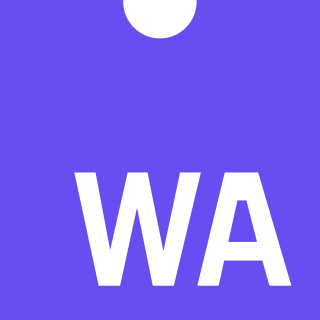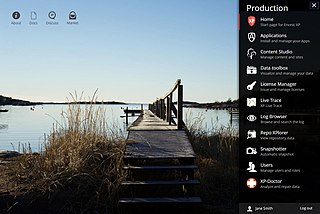
Greasemonkey is a userscript manager made available as a Mozilla Firefox extension. It enables users to install scripts that make on-the-fly changes to web page content after or before the page is loaded in the browser.
Google Developers is Google's site for software development tools and platforms, application programming interfaces (APIs), and technical resources. The site contains documentation on using Google developer tools and APIs—including discussion groups and blogs for developers using Google's developer products.

The Yahoo! User Interface Library (YUI) is a discontinued open-source JavaScript library for building richly interactive web applications using techniques such as Ajax, DHTML, and DOM scripting. YUI includes several cores CSS resources. It is available under a BSD License. Development on YUI began in 2005 and Yahoo! properties such as My Yahoo! and the Yahoo! front page began using YUI in the summer of that year. YUI was released for public use in February 2006. It was actively developed by a core team of Yahoo! engineers.
jQuery is a JavaScript library designed to simplify HTML DOM tree traversal and manipulation, as well as event handling, CSS animations, and Ajax. It is free, open-source software using the permissive MIT License. As of August 2022, jQuery is used by 77% of the 10 million most popular websites. Web analysis indicates that it is the most widely deployed JavaScript library by a large margin, having at least three to four times more usage than any other JavaScript library.
This is a comparison of web frameworks for front-end web development that are heavily reliant on JavaScript code for their behavior.

Google Closure Tools is a set of tools to help developers build rich web applications with JavaScript. It was developed by Google for use in their web applications such as Gmail, Google Docs and Google Maps. As of 2023, the project had over 230K LOCs not counting the embedded Mozilla Rhino compiler.

Node.js is a cross-platform, open-source JavaScript runtime environment that can run on Windows, Linux, Unix, macOS, and more. Node.js runs on the V8 JavaScript engine, and executes JavaScript code outside a web browser.
There are different JavaScript charting libraries available. Below is a comparison of which features are available in each.
Leaflet is a JavaScript library used to build web mapping applications. It allows developers without a GIS background to display tiled web maps hosted on a public server, with optional tiled overlays. It can load feature data from GeoJSON files, style it and create interactive layers, such as markers with popups when clicked.
Brotli is a lossless data compression algorithm developed by Google. It uses a combination of the general-purpose LZ77 lossless compression algorithm, Huffman coding and 2nd-order context modelling. Brotli is primarily used by web servers and content delivery networks to compress HTTP content, making internet websites load faster. A successor to gzip, it is supported by all major web browsers and has become increasingly popular, as it provides better compression than gzip.

WebAssembly (Wasm) defines a portable binary-code format and a corresponding text format for executable programs as well as software interfaces for facilitating communication between such programs and their host environment.
Velocity is a cross-platform JavaScript library designed to simplify the client-side scripting of website animation. Velocity is free, open-source software licensed under the MIT License. It is the most popular open source web animation engine.
ContentTools is an open-source WYSIWYG editor for HTML content written in JavaScript/CoffeeScript by Anthony Blackshaw of Getme Limited.

Electron is a free and open-source software framework developed and maintained by OpenJS Foundation. The framework is designed to create desktop applications using web technologies that are rendered using a version of the Chromium browser engine and a back end using the Node.js runtime environment. It also uses various APIs to enable functionality such as native integration with Node.js services and an inter-process communication module.
Metasfresh is an open-source, free ERP software designed and developed for SMEs. Metasfresh is an actively maintained fork of ADempiere and can be used and distributed freely. It does not require a contributor license agreement from partners or contributors. While numerous open-source ERP projects exist, Metasfresh was included in the Top 9 Open Source ERPs to Consider by opensource.com.
JSDelivr is a public content delivery network (CDN) for open-source software projects, including packages hosted on GitHub, npm, and WordPress.org. JSDelivr was created by developer Dmitriy Akulov.

Enonic XP is a free and open-source web application platform and content management system (CMS) in one based on Java and Elasticsearch. Developed by the Norwegian software company Enonic, the microservice web platform can be used to build progressive web applications, Next.js websites, or web-based APIs. Enonic XP uses an application framework for coding server logic with JavaScript, and has no need for SQL as it ships with an integrated content repository. The CMS is fully decoupled, meaning developers can create traditional websites and landing pages, or use XP in headless mode, that is without the presentation layer, for loading editorial content onto any device or client. Enonic is used by major organizations in Norway, including the national postal service Norway Post, the insurance company Gjensidige, the national lottery Norsk Tipping, the Norwegian Labour and Welfare Administration, and all the top football clubs in the national football league for men, Eliteserien.

Deno is a runtime for JavaScript, TypeScript, and WebAssembly that is based on the V8 JavaScript engine and the Rust programming language. Deno was co-created by Ryan Dahl, who also created Node.js.

Decentraleyes is a free and open-source browser extension used for local content delivery network (CDN) emulation. Its primary task is to block connections to major CDNs such as Cloudflare and Google and serve popular web libraries locally on the user's machine. Decentraleyes is available for Microsoft Edge, Mozilla Firefox + Firefox ESR, Google Chrome, Pale Moon and Opera web browsers.
Vercel Inc., formerly ZEIT, is an American cloud platform as a service company. The company maintains the Next.js web development framework.








